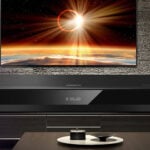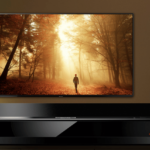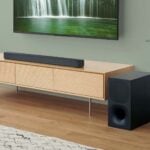Ernest R
Agent
- Joined
- Jun 6, 2002
- Messages
- 28
On a percentage scale, how much better will a oprtical connection be over a coax digital connection.
Reason for the question:
I bought by dvd player in the early days of dvddome. It broke last month and looking for a dvdr to replace it. 3 years after I put together a HT system but never replace the DVD player which only had digital coax audio outs. Well now I will have the optical out to connect the Dennon receiver. But just courious how better DTS will sound using the optical connection.
Future Thanks.
Reason for the question:
I bought by dvd player in the early days of dvddome. It broke last month and looking for a dvdr to replace it. 3 years after I put together a HT system but never replace the DVD player which only had digital coax audio outs. Well now I will have the optical out to connect the Dennon receiver. But just courious how better DTS will sound using the optical connection.
Future Thanks.





